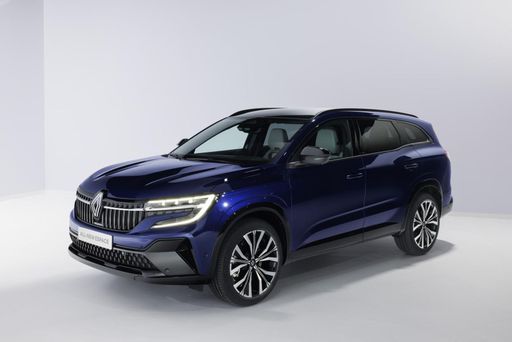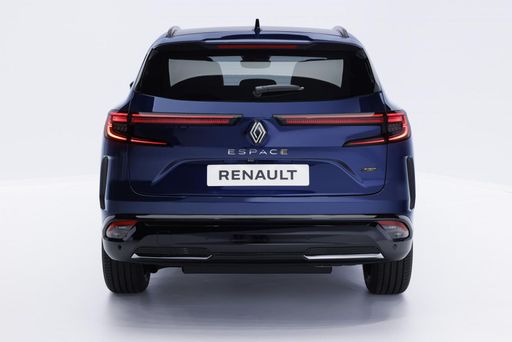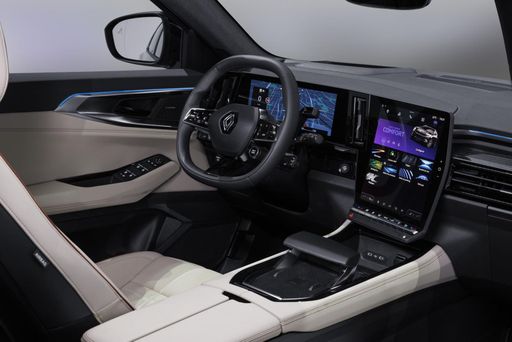Hyundai Kona vs Renault Espace - Differences and prices compared
Compare performance (218 HP vs 200 HP), boot space and price (23100 £ vs 37500 £ ) at a glance. Find out which car is the better choice for you – Hyundai Kona or Renault Espace?
Costs and Efficiency:
Price and efficiency are key factors when choosing a car – and this is often where the real differences emerge.
Hyundai Kona has a decisively advantage in terms of price – it starts at 23100 £ , while the Renault Espace costs 37500 £ . That’s a price difference of around 14485 £.
Fuel consumption also shows a difference: Hyundai Kona manages with 4.60 L and is therefore hardly perceptible more efficient than the Renault Espace with 4.90 L. The difference is about 0.30 L per 100 km.
Engine and Performance:
Power, torque and acceleration say a lot about how a car feels on the road. This is where you see which model delivers more driving dynamics.
When it comes to engine power, the Hyundai Kona has a barely noticeable edge – offering 218 HP compared to 200 HP. That’s roughly 18 HP more horsepower.
In acceleration from 0 to 100 km/h, the Hyundai Kona is a bit quicker – completing the sprint in 7.80 s, while the Renault Espace takes 8.80 s. That’s about 1 s faster.
In terms of top speed, the Hyundai Kona performs somewhat better – reaching 210 km/h, while the Renault Espace tops out at 174 km/h. The difference is around 36 km/h.
Space and Everyday Use:
Beyond pure performance, interior space and usability matter most in daily life. This is where you see which car is more practical and versatile.
Seats: Renault Espace offers clearly perceptible more seating capacity – 7 vs 5.
In curb weight, Hyundai Kona is clearly perceptible lighter – 1370 kg compared to 1673 kg. The difference is around 303 kg.
In terms of boot space, the Renault Espace offers evident more room – 692 L compared to 466 L. That’s a difference of about 226 L.
In maximum load capacity, the Renault Espace performs clearly better – up to 2224 L, which is about 924 L more than the Hyundai Kona.
When it comes to payload, Renault Espace slightly takes the win – 581 kg compared to 490 kg. That’s a difference of about 91 kg.
Who wins the race?
The Hyundai Kona proves to be leaves the rival little chance and therefore becomes our DriveDuel Champion!
Hyundai Kona is the better all-rounder in this comparison.

Hyundai Kona
Costs and Consumption
View detailed analysis
Engine and Performance
View detailed analysis
Dimensions and Body
View detailed analysis
Hyundai Kona
The Hyundai Kona wears its personality on the outside with bold styling and sprightly handling that turns city driving into something a little more fun than a commute. It blends practical space, modern tech and sensible running costs into a compact, stylish package — a smart pick if you want flair without paying luxury prices.
details



Renault Espace
The Renault Espace is the sort of roomy, clever family cruiser that makes long journeys feel effortless, its interior prioritising comfort and practical thinking without drifting into blandness. It won't pretend to be a sports car, but its composed ride, smart packaging and a whisper of French flair make it a sensible and subtly stylish choice for buyers who value space and versatility.
details




Costs and Consumption |
|
|---|---|
|
Price
23100 - 41600 £
|
Price
37500 - 41400 £
|
|
Consumption L/100km
4.6 - 7 L
|
Consumption L/100km
4.90 L
|
|
Consumption kWh/100km
14.6 - 16.8 kWh
|
Consumption kWh/100km
-
|
|
Electric Range
377 - 514 km
|
Electric Range
-
|
|
Battery Capacity
1.3 - 65.4 kWh
|
Battery Capacity
-
|
|
co2
0 - 163 g/km
|
co2
110 g/km
|
|
Fuel tank capacity
38 - 47 L
|
Fuel tank capacity
55 L
|
Dimensions and Body |
|
|---|---|
|
Body Type
SUV
|
Body Type
SUV
|
|
Seats
5
|
Seats
5 - 7
|
|
Doors
5
|
Doors
5
|
|
Curb weight
1370 - 1773 kg
|
Curb weight
1673 - 1783 kg
|
|
Trunk capacity
466 L
|
Trunk capacity
212 - 692 L
|
|
Length
4350 - 4385 mm
|
Length
4746 mm
|
|
Width
1825 mm
|
Width
1830 mm
|
|
Height
1580 - 1585 mm
|
Height
1645 mm
|
|
Max trunk capacity
1300 L
|
Max trunk capacity
2054 - 2224 L
|
|
Payload
420 - 490 kg
|
Payload
404 - 581 kg
|
Engine and Performance |
|
|---|---|
|
Engine Type
Electric, Petrol, Full Hybrid
|
Engine Type
Full Hybrid
|
|
Transmission
Automatic, Manuel
|
Transmission
Automatic
|
|
Transmission Detail
Reduction Gearbox, Manual Gearbox, Dual-Clutch Automatic
|
Transmission Detail
Automatic Gearbox
|
|
Drive Type
Front-Wheel Drive, All-Wheel Drive
|
Drive Type
Front-Wheel Drive
|
|
Power HP
115 - 218 HP
|
Power HP
200 HP
|
|
Acceleration 0-100km/h
7.8 - 11.9 s
|
Acceleration 0-100km/h
8.80 s
|
|
Max Speed
162 - 210 km/h
|
Max Speed
174 km/h
|
|
Torque
200 - 265 Nm
|
Torque
-
|
|
Number of Cylinders
3 - 4
|
Number of Cylinders
3
|
|
Power kW
85 - 160 kW
|
Power kW
147 kW
|
|
Engine capacity
998 - 1598 cm3
|
Engine capacity
1199 cm3
|
General |
|
|---|---|
|
Model Year
2024 - 2025
|
Model Year
2025
|
|
CO2 Efficiency Class
A, D, C, E, F
|
CO2 Efficiency Class
C
|
|
Brand
Hyundai
|
Brand
Renault
|
Is the Hyundai Kona offered with different drivetrains?
Available configurations include Front-Wheel Drive or All-Wheel Drive.




